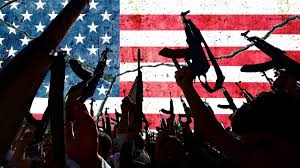Study Examines Contributions Of Gay Troops To Mideast Wars
Gay Army Ranger, Brian Hughes, Participated in Jessica Lynch Rescue
SANTA BARBARA, CA, — A new study released today is the first assessment of the impact of the gay ban on U.S. military effectiveness in recent Middle East wars. The study, by Dr. Nathaniel Frank, is titled “Gays and Lesbians at War: Military Service in Iraq and Afghanistan Under ‘Don’t Ask, Don’t Tell.'”
The study concludes that gays and lesbians serve openly in the Middle East without undermining unit cohesion or the missions in Iraq and Afghanistan. When gays are out, they report greater success in bonding, morale, professional advancement, levels of commitment & retention and access to essential support services.
It also finds that “Don’t Ask, Don’t Tell” impairs the capacity of gay troops to develop bonds of trust, minimize stress, prepare for deployment, focus on their mission, advance professionally and access support services, including medical & psychological consultations. And, these effects appear to have an impact not just on gays, but on those around them, by creating an atmosphere of dishonesty and distrust as well as disrespect for the law and the principles of integrity that are essential to military service.
Among the dozens of stories included in the study is that of Brian Hughes, a gay Army Ranger who was part of the task force that rescued Iraqi War POW Jessica Lynch. The Ranger regiment is an elite infantry unit of the Army, which is part of the Special Operations Command. Hughes took time off from Yale University to join the Army in August of 2000, where he became an E5 Sergeant (NCO). In the fall of 2002, he was deployed to Afghanistan where he did search patrols for personnel and weapons. He then cycled into Iraq for the start of Operation Iraqi Freedom, where he participated in the Lynch rescue.
The study is based on thirty in-depth interviews with gay, lesbian and bisexual service members who were deployed to Iraq and Afghanistan since Oct 7, 2001, as well as on field observations made stateside. It also draws on secondary research and interviews with government officials, academics and other experts on military affairs. All research was conducted between February and September, 2004.
Click here to download the study. (MS Word Document)
